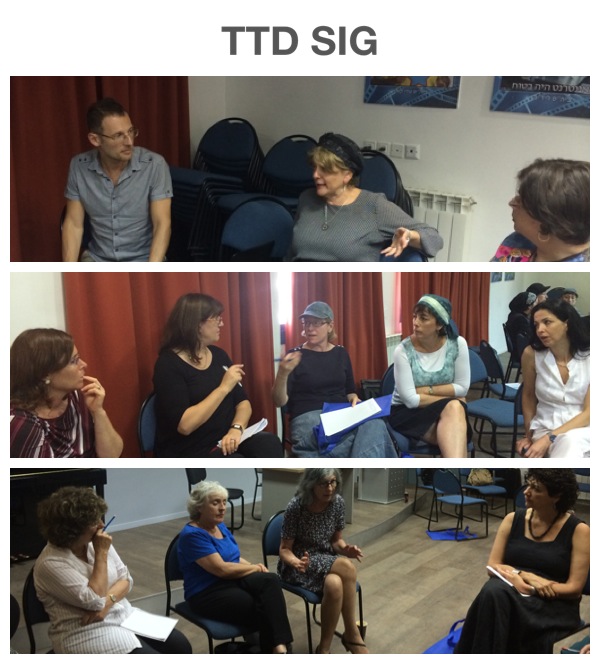It isn’t often that you get an opportunity to be present at the start of something new, something that has the power to change the way we think about teacher training, about the proficiency of non-native ELT teachers, and about the role and impact of research upon English teachers in the classroom. Today, at the ETAI pre-conference Teacher Training and Development, inaugural Special Interest Group, I was privileged to witness the start of a movement for change.
Dr. Lindsey Shapiro Steinberg, opened the day with questions regarding the recruiting of talent, and whether need necessitates compromise. What is a good ELT practitioner? What level of proficiency is required by English teachers? What is learning, and how is learning assessed? Following Dr. Shapiro Steinberg’s opening Dr. Debbie Lifshitz spoke about ‘Shaking Up the Israeli Conventions of Teacher Training.’ With statistics to demonstrate the challenges faced by Non-native English speaking teacher (NESTS) trainees, regarding proficiency at entry and exit of teacher training programmes, and the challenges that lay ahead. Dr. Lifshitz suggested that proficiency levels of NESTS are critical for teacher retention in the schools, in a system where teachers are aging, and more than 40% of newly qualified English teachers never even enter the school system upon graduation.
Following the morning presentation participants divided into 3 discussion groups, Proficiency, Methodology and Linguistics, and discussed changes that could be taken by each of these areas, to positively impact upon the proficiency of future NESTS . (Watch the ETAI website for a summary of each group’s suggestions.)
The afternoon session was expertly led by Professor Penny Ur who discussed ‘Research and the language teacher.’ Professor Ur asserted that “Research is not the main source of teacher knowledge, but it can enrich it.” She stated that it contributes to teaching in three ways by:
- Producing evidence, that can be used to create practical principles for teaching
- Providing new insights / information that would not have occurred to teachers otherwise
- Contradicting inaccuracies in methodology or firmly held theoretical beliefs
Professor Ur provided numerous examples of why research is regarded so highly by the academia and ministries of education, and yet is often seen as trivial, irrelevant or impractical by teachers in the field. The sheer quantity of literature is overwhelming, and therefore needs to be read selectively and critically. Professor Ur suggested that if we want preset and inset teachers to read research there is a need for ‘mediators’, chiefly teacher trainers, who can mediate the research on their behalf.
The day closed with an open discussion led by Professor Penny Ur and a thirst for more discussion and dare I say, action. “Professional Development takes place through professional conversation.” Garton and Richards (2011) Today was truly a day of Professional Development at the inaugural Teacher Training & Development SIG.
